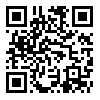Volume 5, Issue 4 (January 2025)
2025, 5(4): 196-213 |
Back to browse issues page
Ethics code: ...
Download citation:
BibTeX | RIS | EndNote | Medlars | ProCite | Reference Manager | RefWorks
Send citation to:



BibTeX | RIS | EndNote | Medlars | ProCite | Reference Manager | RefWorks
Send citation to:
Hoseini S M, Kakavand A, Shiri E. (2025). Effectiveness of Filial Therapy in Maternal Sensitivity and Parental Stress of Preschool Children with Emotional and Behavioral Problems in District 10 of Tehran during the COVID-19 Pandemic. Journal of Childhood Health and Education. 5(4), 196-213. doi:10.32592/jeche.5.4.196
URL: http://jeche.ir/article-1-246-en.html
URL: http://jeche.ir/article-1-246-en.html
1- Master's Degree in General Psychology, Imam Khomeini International University, Qazvin, Iran
2- Associate Professor of Imam Khomeini International University, Qazvin, Iran
3- Assistant Professor of Imam Khomeini International University, Qazvin, Iran
2- Associate Professor of Imam Khomeini International University, Qazvin, Iran
3- Assistant Professor of Imam Khomeini International University, Qazvin, Iran
Abstract: (1220 Views)
Background and Aim: Considering the psychological consequences of COVID-19 on the mental health of children and parents and its significant impact on the quality of parent-child relationship, the present study aimed to assess the effect of filial therapy on maternal sensitivity and parental stress of preschool children with emotional and behavioral problems in District 10 of Tehran during the COVID-19 pandemic. Methods: This applied quasi-experimental research was conducted based on a pre-test-post-test control group design with a follow-up. The statistical population of the present study included the mothers of preschool children with emotional and behavioral problems in the 10th district of Tehran in 2022. A total of 41 people were selected by convenience sampling method. A number of 21 cases were randomly placed in the experimental group and 20 subjects were allocated to the control group. Thereafter, the mothers of the experimental group participated in Filial Therapy training sessions, and the mothers of the control group were waiting to receive the intervention. Both groups were evaluated three times: pre-test, post-test, at follow-up (one month after the end of the intervention) with the Behavior Checklist (Achenbach and Rescorla, 1991), maternal care quality questionnaire (Ghanbari et al., 2012), and the parental stress index questionnaire (Abidin, 1992). Analysis of covariance (ANCOVA) and multivariate covariance analysis (MANCOVA) were used to analyze the findings. Results: The results demonstrated that maternal sensitivity of the experimental group increased compared to the control group, and the level of parental stress decreased(except in the relationship with spouse subscale in the parent domain). Discussions: Filial therapy can be used as one of the upcoming interventions during crises, such as COVID-19, to improve parent-child relationship and reduce parental tension.
Keywords: Filial Therapy, Maternal Sensitivity, Parental Stress, Emotional and Behavioral problems, Corona
Type of Study: Research |
Subject:
Special
Received: 2024/07/7 | Accepted: 2024/11/3 | Published: 2025/02/28
Received: 2024/07/7 | Accepted: 2024/11/3 | Published: 2025/02/28
Extended Abstract [HTM 40 KB] (45 Download)
Send email to the article author
| Rights and permissions | |
 |
This work is licensed under a Creative Commons Attribution-NonCommercial 4.0 International License. |




